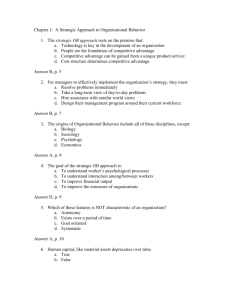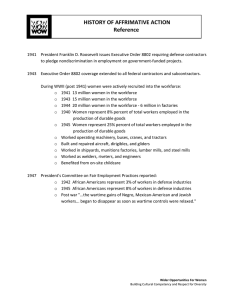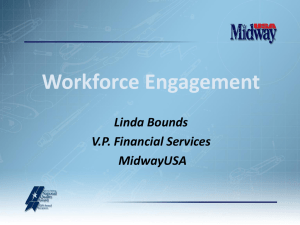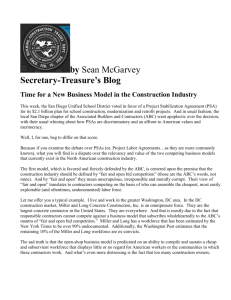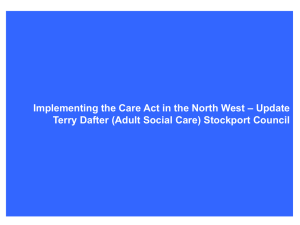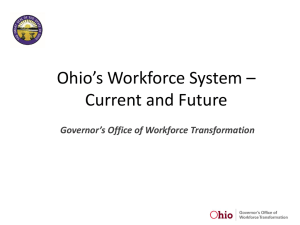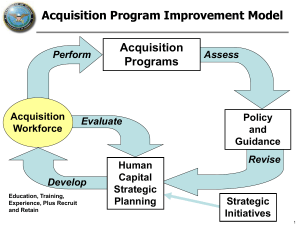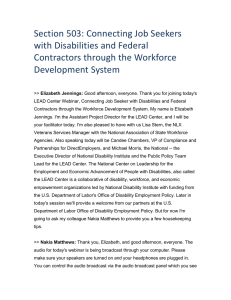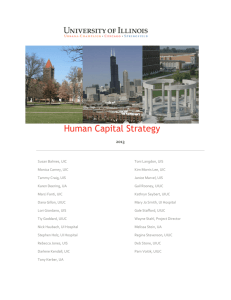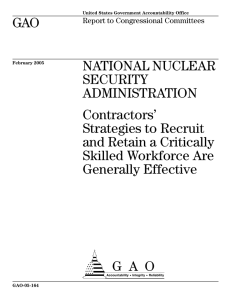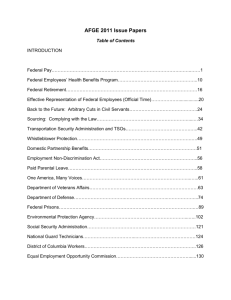Federal Workforce Learns to Guide Managed Services
advertisement
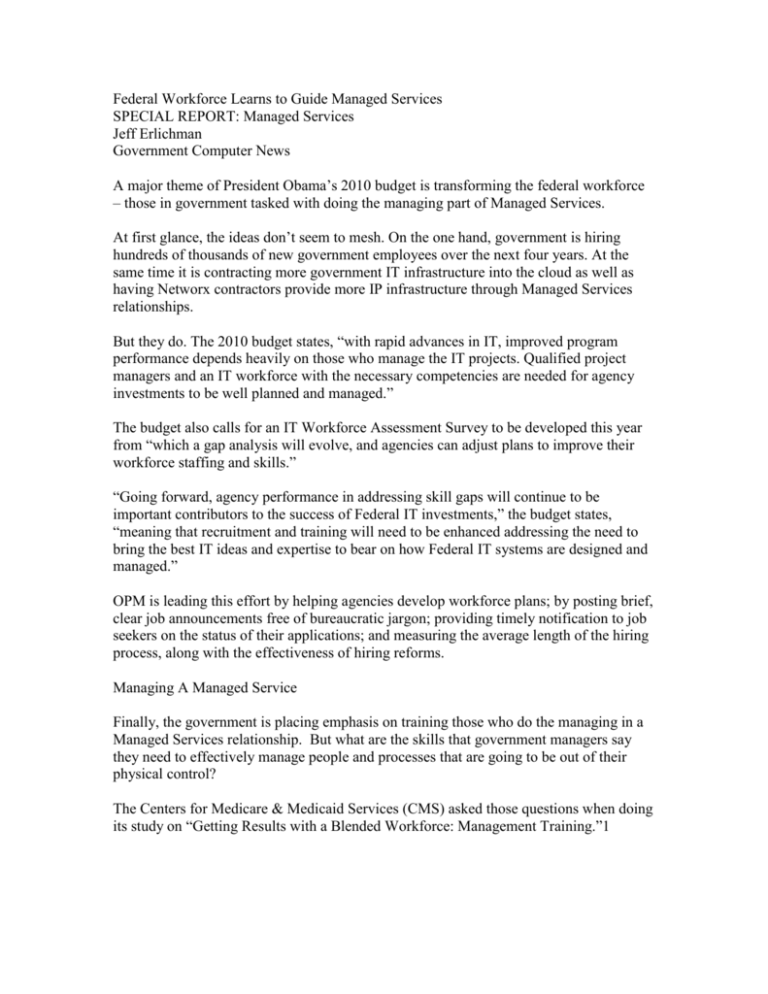
Federal Workforce Learns to Guide Managed Services SPECIAL REPORT: Managed Services Jeff Erlichman Government Computer News A major theme of President Obama’s 2010 budget is transforming the federal workforce – those in government tasked with doing the managing part of Managed Services. At first glance, the ideas don’t seem to mesh. On the one hand, government is hiring hundreds of thousands of new government employees over the next four years. At the same time it is contracting more government IT infrastructure into the cloud as well as having Networx contractors provide more IP infrastructure through Managed Services relationships. But they do. The 2010 budget states, “with rapid advances in IT, improved program performance depends heavily on those who manage the IT projects. Qualified project managers and an IT workforce with the necessary competencies are needed for agency investments to be well planned and managed.” The budget also calls for an IT Workforce Assessment Survey to be developed this year from “which a gap analysis will evolve, and agencies can adjust plans to improve their workforce staffing and skills.” “Going forward, agency performance in addressing skill gaps will continue to be important contributors to the success of Federal IT investments,” the budget states, “meaning that recruitment and training will need to be enhanced addressing the need to bring the best IT ideas and expertise to bear on how Federal IT systems are designed and managed.” OPM is leading this effort by helping agencies develop workforce plans; by posting brief, clear job announcements free of bureaucratic jargon; providing timely notification to job seekers on the status of their applications; and measuring the average length of the hiring process, along with the effectiveness of hiring reforms. Managing A Managed Service Finally, the government is placing emphasis on training those who do the managing in a Managed Services relationship. But what are the skills that government managers say they need to effectively manage people and processes that are going to be out of their physical control? The Centers for Medicare & Medicaid Services (CMS) asked those questions when doing its study on “Getting Results with a Blended Workforce: Management Training.”1 The CMS objective was to clearly identify management skills and work processes for dealing with contracts and contractors, and government employees who oversee the work of the contractors. The ten most important skills in order were: 1. Leadership 2. Interpersonal & Relationship Management 3. Oral Communications & Presentations 4. Negotiation & Conflict Resolution 5. Program & Project Management 6. Written Skills 7. Subject Matter Expertise 8. Policies & Regulations 9. Contract Management 10. Acquisition & Procurement Learning Strategies Recognizing what people need to learn is just the first step. How they are going to learn is going to take an investment in training time – and dollars. Here’s what CMS professionals said would work best for them. 1. Mentoring: either set up a formal program where retirees are brought back as resource or set up a program where experienced managers mentor their more inexperienced colleagues. 2. Management Support Groups: increase team building by setting up networks of “subject matter experts” people can call on and form management “peer groups” where managers can meet regularly with others to share experiences and get advice. 3. Working Groups: increase team building by setting up working groups in the skills/competency areas needed where best practices can be demonstrated to both managers and staff. 4. Online/Web Training and Resources: build an online training and resource section focusing on skills/competency areas that people can access and learn on their own time. 5. In Person Education/Resources: numerous courses are currently available in the skill and competency areas, but many said there was neither the time nor the dollars to take multiple day courses. As an alternative, CMS could examine alternatives for presenting these courses in-house in half-day or one-day sessions. Management eager for training and improvement could look to these relatively inexpensive solutions – e.g. mentoring and working groups – that will not only improve their skills, but also will boost morale, enhance collaboration, establish mechanisms for continued training and education and create a stable of in-house leaders for the future. 1 Getting Results With A Blended Workforce, Public Sector Communications, 2006 Jeff Erlichman is a freelance writer for 1105 Government Information Group’s Custom Media unit. This Snapshot report was commissioned by the Custom Media Group, an independent editorial arm of 1105 Government Information Group. Specific topics are chosen in response to interest from the vendor community; however, sponsors are not guaranteed content contribution or review of content before publication. For more information about 1105 Government Information Group Custom Media, please email us at GIGCustomMedia@1105govinfo .com



